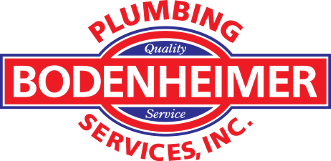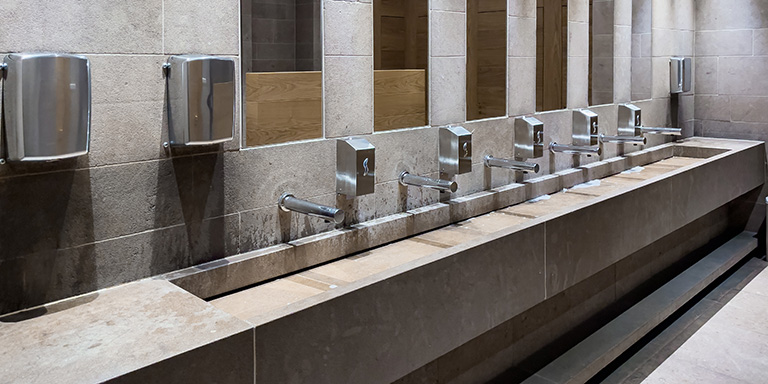Few things can disrupt the operational pace of a commercial establishment quite like a plumbing issue. Whether it’s a dripping faucet, clogged drain, or a full-blown pipe burst, plumbing problems not only lead to immediate inconvenience but can also damage property, impact productivity, and, potentially, pose health and safety risks. Therefore, it’s essential for the smooth running of daily operations that your commercial plumbing system is well-maintained.
In this guide, we’re breaking down the top five maintenance practices that can significantly extend the lifespan of your commercial plumbing system, and help you stay ahead of potential issues. Whether you manage a high-rise office building, a bustling retail space, or a cozy neighborhood cafe, these tips are designed to keep your plumbing performing at its best.
Prioritizing Plumbing Maintenance
Plumbing is one of the most crucial aspects of any commercial setting, yet it is often taken for granted. Robust plumbing maintenance is not only about preventing issues but also a cornerstone of good operational management. It means ensuring everything, from the water heaters to the smallest fittings, is functioning correctly and safe-guarding against the costly ramifications of negligence.
In this post, we will delve into the specifics of plumbing upkeep, providing you with actionable steps to enhance the longevity and reliability of your plumbing infrastructure. These insights reflect years of best practices observed by industry professionals, tailored to the unique demands of the commercial sector.
Tip 1: Schedule Regular Inspections
Undeniably, regular professional inspections are the backbone of a well-maintained plumbing system. By detecting and addressing minor issues before they escalate, these routine checks avert major disasters and save significant costs in the long run.
Why Are Inspections Vital?
Commercial plumbing systems are complex and delicate. The wear and tear are inevitable due to heavy usage. Inspections help identify areas of stress, corrosion, or potential failures before they cause significant damage.
How Often Should You Inspect?
A rule of thumb is to have a qualified plumber inspect your commercial plumbing system at least once a year. However, businesses with particularly heavy or sensitive plumbing needs — such as those in the food industry or healthcare — may require more frequent checks.
Tip 2: Address Leaks Promptly
Leaks can be insidious; they often start small and are easy to overlook but can snowball into considerable problems. In commercial settings, even a minor leak can lead to significant water wastage and compromise the integrity of the building’s structure.
The Cost of Neglect
Ignoring leaks can lead to mold growth, degrade the building’s foundation, and inflame potential electrical hazards from water contact.
How to Identify and Resolve Leaks
A diligent maintenance team can identify visible leaks. However, concealed leaks might only be detectable through increases in your water bills. For fixes, it’s best to rely on the expertise of a certified plumber.
Tip 3: Preventive Drain Cleaning
Regular drain cleaning is vital in commercial spaces where the volume of waste and materials flushed or poured down sinks and toilets is much higher.
Importance of Clean Drains
Clogs can lead to backups and overflows, which are especially hazardous in settings where hygiene and cleanliness are paramount, such as restaurants or healthcare facilities.
Methods for Keeping Drains Clear
You can implement scheduled cleanings using natural or enzyme-based solutions, avoiding harsh chemical drain cleaners that can damage the pipe material over time.
Tip 4: Educate Employees on Proper Usage
Misuse of commercial plumbing fixtures is more common than you might think. Employees who aren’t well-versed in best practices inadvertently contribute to the wear and tear of the system.
Common Employee Mistakes
Flushing non-flushable items down the toilet, improper use of garbage disposals, and neglecting to report potential issues are just a few of the common errors.
Establishing Proper Protocols
Effective use of signage, regular training, and accessible reporting channels can help in ensuring employees are equipped to maintain the plumbing system’s health.
Tip 5: Work with a Professional Plumbing Service
The value of a reliable, professional plumbing service cannot be overstated. Establishing a partnership with such a service is akin to having an ally who understands your system’s nuances and can respond swiftly to emergencies.
Benefits of a Strong Partnership
Aside from quicker response times and deep familiarity with your system, a professional plumbing service can often provide cost-effective preventive solutions that are tailored to your specific needs.
How to Select the Right Service
When considering a plumbing service, look for one with a proven track record, comprehensive insurance, and a customer service orientation that puts your business’s well-being at the forefront.
Invest in Preventative Commercial Plumbing Maintenance with Bodenheimer Plumbing Services
Your commercial plumbing system, when well-maintained, is integral to the seamless operational flow of your business. Investing in these preventive measures not only grants peace of mind but is also a strategic move to protect your investments and foster a thriving work environment.
With due diligence and these proactive steps, you’re setting the stage for a robust, reliable commercial plumbing system that serves your business well for years to come.
At Bodenheimer Plumbing Services, we understand the unique demands of commercial plumbing and provide tailored solutions that keep your system in top shape. Contact us today to schedule a consultation or learn more about our services. So, don’t wait until it’s too late – prioritize your plumbing maintenance now and reap the benefits for years to come!


